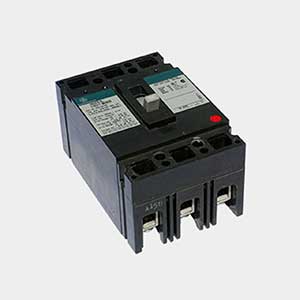Welcome to our comprehensive guide on understanding industrial circuit breakers! In the fast-paced world of the electrical wholesale industry, it is crucial to have a solid grasp on the essential components that power our modern infrastructure. One such component is the industrial circuit breaker, which plays a critical role in protecting electrical systems from overloads and faults.
In this blog post, we will delve into the different types of industrial circuit breakers and how they work. Whether you are involved in Electrical Motor Controls, Industrial Motor Controls, or Electrical Power Transformers, this guide will equip you with valuable knowledge to navigate through the complexities of these vital devices.
So buckle up and get ready to explore the fascinating world of industrial circuit breakers – let’s dive right in!
Types of Industrial Circuit Breakers
Industrial circuit breakers come in various types, each designed for specific applications and electrical systems. Understanding the different types will help you choose the right one for your needs.
- Molded Case Circuit Breakers (MCCBs): These versatile circuit breakers are widely used in industrial settings due to their compact size and robust construction. MCCBs can handle higher amperages and provide reliable protection against overloads and short circuits.
- Air Circuit Breakers (ACBs): Ideal for high-current applications, ACBs use compressed air to extinguish an arc when a fault occurs. They offer excellent performance in demanding environments where frequent operations may be required.
- Miniature Circuit Breakers (MCBs): Commonly found in residential and commercial buildings, MCBs protect individual branch circuits from overload and short circuits. They have a smaller current rating compared to MCCBs but are more cost-effective for lower power requirements.
- Residual Current Circuit Breakers with Overcurrent Protection (RCBOs): These specialized circuit breakers combine the features of MCBs and residual current devices (RCDs). RCBOs not only protect against overloads but also detect leakage currents, providing enhanced safety against electric shocks.
Remember that these are just a few examples of the many types of industrial circuit breakers available on the market today! It’s important to consult with professionals or refer to manufacturer specifications when selecting the appropriate breaker for your specific application.
How do Industrial Circuit Breakers work?
Industrial circuit breakers play a crucial role in maintaining electrical safety and preventing equipment damage in various industries. But how exactly do these devices work?
At their core, industrial circuit breakers are designed to interrupt or break the flow of electric current when there is an overload or short circuit in the system. This helps protect against potential fires, electrical shocks, and other hazards.
When an excessive amount of current flows through a circuit breaker, it triggers its internal mechanism to trip or open the contacts. This action interrupts the current flow, effectively cutting off power to that specific part of the electrical system.
To ensure efficient operation, industrial circuit breakers are equipped with different components such as electromagnets and thermal elements. The electromagnetic component senses any sudden surge in current, while the thermal element detects prolonged overloads.
Once tripped, some types of industrial circuit breakers can be manually reset by flipping a switch back into position. Others require manual replacement or professional intervention depending on their design and purpose.
Industrial circuit breakers act as essential protection devices that automatically detect abnormal currents and prevent electrical accidents from occurring. By understanding how they work, businesses can ensure safer operations within their facilities while minimizing costly downtime due to equipment failures.
Conclusion
Understanding industrial circuit breakers is essential for anyone working in the electrical wholesale industry. These critical pieces of equipment are designed to protect electrical systems from overloads, short circuits, and other potentially dangerous situations.
In this comprehensive guide, we have explored the different types of industrial circuit breakers and how they work. From thermal-magnetic circuit breakers to molded case circuit breakers, each type has its own unique features and applications.
We also discussed how industrial circuit breakers function by interrupting the flow of electricity when abnormal conditions occur. This interruption helps prevent damage to equipment and ensures the safety of personnel working with electrical systems.

